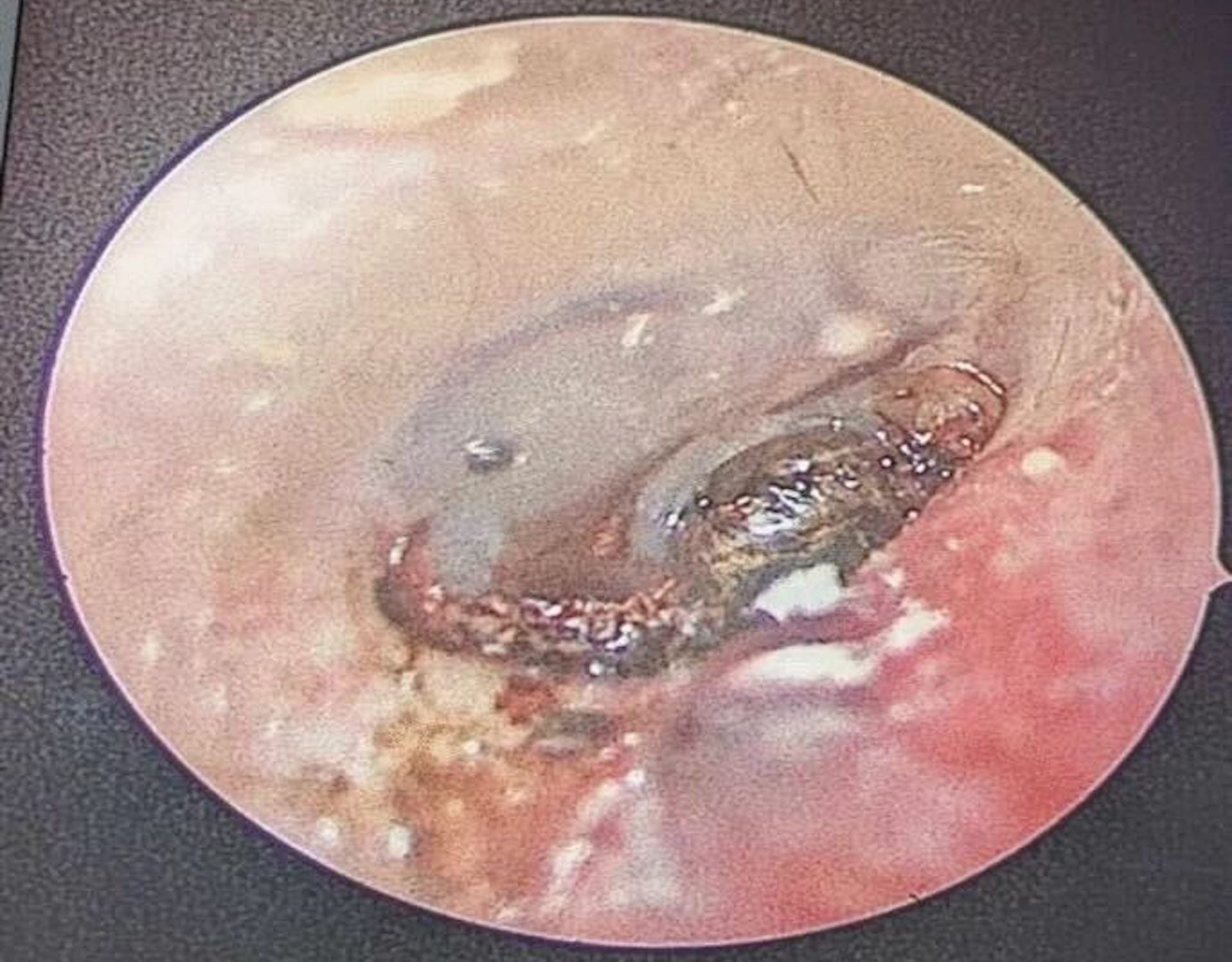Woman's sudden hearing loss turned out to be a tick lodged in her ear canal
The tick was found lodged in the skin of her left ear canal after a thorough examination by her doctors.

A woman's sudden ear pain, hearing loss and dizziness turned out to have a disturbing cause: a tick infestation in her ear canal.
The 21-year-old, from Dharan, Nepal, had been experiencing "piercing" pain in her right ear, coupled with progressive hearing loss, vertigo, nausea and tinnitus, or ringing in the ear. These symptoms came on suddenly about a week prior to her examination, her doctors said in a case report published Jan. 7 in the Journal of Medical Case Reports.
During the examination, doctors at the B.P. Koirala Institute of Health Sciences in Dharan saw that the patient's right ear canal was congested and inflamed. A test also revealed "severe-to-profound" hearing loss in that ear, suggesting the nerves tasked with detecting sound weren't working properly.
Looking closer, the examiners found a foreign body lodged in the skin of the woman's inner ear — it turned out to be a dead tick.
"This case underscores the importance of prompt clinical assessment and treatment in cases of aural [relating to the ear] tick infestation," the study authors wrote, adding that such infestations can lead to severe complications, including permanent hearing loss and facial paralysis, because tick saliva can contain toxins that damage nerves.
Related: Tick season: What to know about bites, removing ticks and tick-borne diseases
The team said the pain that the patient experienced was likely caused not by the tick itself but as a result of an enzyme in the pest's saliva that triggers inflammation. This inflammation can lead to a condition known as acute labyrinthitis — an infection of the inner ear that can affect balance and cause nausea and tinnitus, according to the British Medical Journal.
Sign up for the Live Science daily newsletter now
Get the world’s most fascinating discoveries delivered straight to your inbox.
Using a suctioning tool and forceps, the team "delicately dislodged" the dead tick from the woman's ear. They also prescribed anti-inflammatory drugs. One month after the procedure, the woman's symptoms had all resolved.


While rare, tick infestations of the ear can be incredibly serious.
"Ticks release neurotoxins inhibiting acetylcholine," a chemical messenger involved in muscle control," the doctors wrote. Messing with acetylcholine can potentially induce respiratory distress or paralysis..
In general, ticks can spread a range of diseases, including Lyme disease and the potentially fatal Powassan virus. The U.S. Centers for Disease Control and Prevention recommends taking the following precautions to protect yourself from getting bitten in areas where ticks live:
- Avoid wooded and brushy areas with high grass and leaf litter, especially with exposed skin.
- Treat clothing and gear with the insecticide permethrin and Environmental Protection Agency (EPA)-registered insect repellents like DEET.
- Cover your skin with light-colored clothing and tuck your pants into your socks when walking in areas where ticks might be present.
After any outdoor activity in areas with ticks, you should also check yourself and your pets for the pests, consider putting your clothing in the dryer on a high heat before washing it, and shower soon after coming indoors, the CDC adds.
Once on a person's body, ticks often head for warm places like the groin, armpit or hair on the head. While it is rare to find ticks around the ear area, it is not unheard of. In 2019, a 9-year-old boy in Connecticut developed a buzzing in his ear after a tick became lodged in his ear drum, according to a case report published in The New England Journal of Medicine.
Disclaimer
This article is for informational purposes only and is not meant to offer medical advice.

Pandora is the trending news editor at Live Science. She is also a science presenter and previously worked as Senior Science and Health Reporter at Newsweek. Pandora holds a Biological Sciences degree from the University of Oxford, where she specialised in biochemistry and molecular biology.









